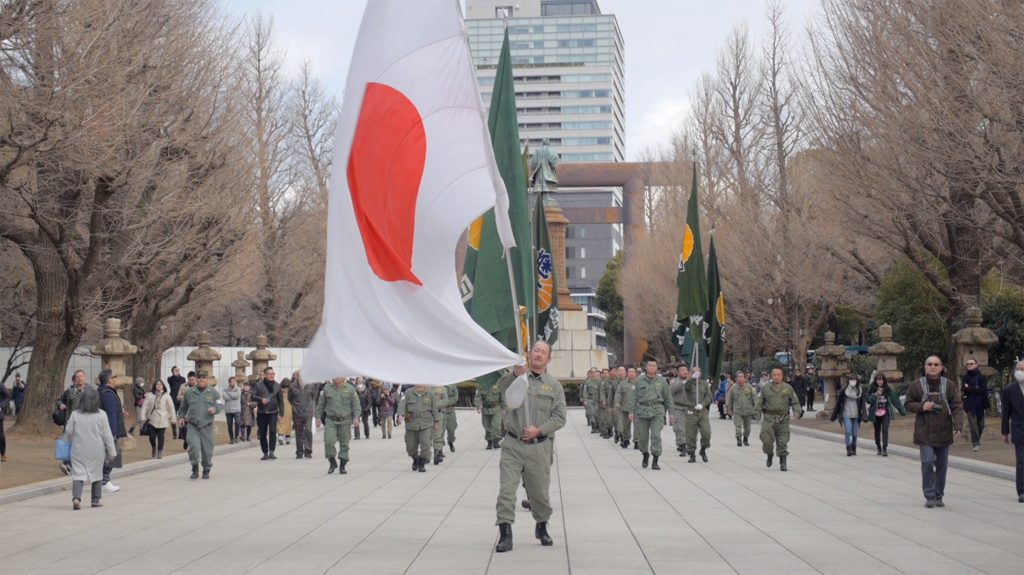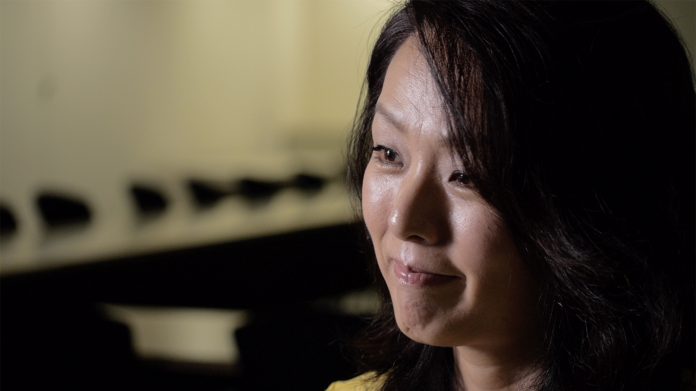(THIS ARTICLE IS MACHINE TRANSLATED by Google from Norwegian)
"The Case of Comfort Women Is Not Settled." That message cuts Miki Dezaki to stone from the beginning of her documentary. Occupation troops use local women for sex work is a phenomenon known from many war contexts. What is referred to by the term "comfort women" is a system put in place by the Japanese military as Japan in the 1940 occupied large parts of East and Southeast Asia, including Korea, the Philippines, former French Indochina and parts of China. .
The silence broken
Although most of those employed as comfort women for the Japanese soldiers have long since died, some of them are still alive, as are their demands for recognition and compensation. Japan declined for many years to speak on the matter at all, and denied that such a thing as a comfort women system had existed. Many of the women remained silent most of their lives; they hid their past for fear of how the surroundings would judge them. However, since the 1990s, the comfort women case, and the demand that Japan take formal responsibility for it, has grown into a political movement. The neo-nationalist movement in Japan – and its political allies in the United States – has begun to strike back. With Japan's Prime Minister Shinzo Abe and his conservative party's firm grip on power have brought the neo-nationalists – and their ideology of trimming and reviving Japan's military past – into the sails.
The deniers – who are they?
Japanese-American director Miki Dezaki himself was caught in the crossfire as he began posting videos on YouTube about Japanese community issues, including the comfort women case. An American known as Texas Daddy started attacking him online, and as Dezaki set out to find out who this person was and why he was, and – it turned out – many others vigorously fought to delegitimize the former comfort womens testimony , Dezaki began to spin in a global spin of revisionist women haters and racist New Nationalists working together to rewrite history books as a central part of their political power strategy.
The comfort women denials are, as Hisae Kennedy puts it, both racist and sexist.
What began as a private investigation turned into the documentary Shusenjo: The Main Battleground of the Comfort Women Issue, which had its world premiere at the Busan International Film Festival in October 2018.

The strength of the film is not its portrayal of the women who worked at the comfort women stations during the Japanese occupation, or its understanding of what a long violent story does to individuals and collectives. There are other films that give voice to the women affected, such as Jane Jin Kaisens The Woman, The Orphan, and the Tiger from 2010 (about Korea), Guo Kes Twenty Two (from 2016 about China) and Björn Jensens Forgotten Sex Slaves – The Comfort Women of the Philippines from 2015. Instead, Dezaki focuses on the battle for historical facts and why this battle is so significant. The documentary maps the denial landscape and includes interviews with Hisae Kennedy, a "defector" who explains how she came to the realization that the revisionism she was involved in was unethical, and with the "spider" Hideaki Kase, an influential Japanese diplomat, who is the chief architect of recent history book revisions in Japan, which has removed virtually all references to the comfort women case. According to his own statement without having bothered to consult the research literature on the subject.
The revisionists are, according to Shusenjo: The Main Battleground of the Comfort Women Issue, connected through nationalist and fascist circles and associations in Japan and the United States, whose main purpose is to reinstall Japan as a military empire in the East. They are driven by a belief that Japanese belong to a superior race. The comfort women denials are, as Hisae Kennedy puts it, both racist and sexist.
The matter is not settled
The documentary starts and ends by showing how historical crimes are key points in today's political battlefields – and how individuals and collectives' demands for justice are entangled in interstate relations and structural shifts of power.
In 1993, the then Cabinet Secretary acknowledgedr Yohei Kono for the first time that the Japanese army had created a system of forced sex work in the occupied territories during World War II. The so-called Kohowever, in practice, no-statement was withdrawn when the current prime minister Shinzo Abe – whose power base is intimately linked to neo-nationalist denials – was elected in 2007.
The demand for justice becomes entangled in interstate relations and structural shifts of power.
In 2015, the South Korean and Japanese governments eventually signed a joint agreement to put an end to the two countries' quarrels over the comfort women case – but without involving the women who demanded justice for what they had been exposed to . The deal had been negotiated under pressure from the United States, which found it inconvenient that its two closest allies in Asia were in conflict.

Hideaki Kase, whom instructor Dezaki identifies as the spider connecting the various networks and associations involved in comfort women denial, is also Nanjing's massacre revisionist / denier. His astounding statements to the camera illustrate the scope of the neo-nationalist movement in Japan. For example, he says the People's Republic of China is doomed sooner or later, and when it does, South Korea – a "poorly educated child" – will have no choice but to become "the most adorable pro-Japanese community".
With curiosity and patience, Dezaki contributes decisively to the understanding of why the comfort women case – more than half a century later – has not yet been settled and how the violence to which thousands of women in East and Southeast Asia were exposed in Japanese dominion, lasts, not only for them, but at a global geopolitical level.
Also read: Historical migration as a vantage point to modern China


